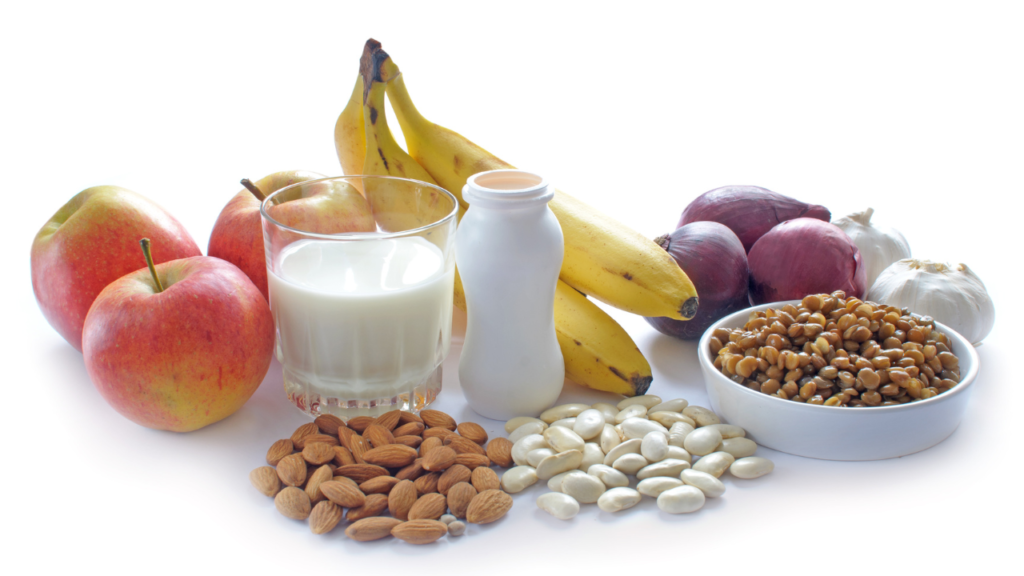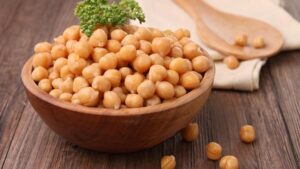Eating for a healthy gut, probiotics and prebiotics.

Eating for a healthy gut involves maintaining a balanced microbiome, which is the community of beneficial bacteria and other microorganisms in your digestive system. Probiotics and prebiotics are two key components that play crucial roles in promoting gut health.

- Probiotics: Probiotics are live beneficial bacteria that, when consumed in adequate amounts, can confer health benefits to the host. They can help restore and maintain a diverse and balanced gut microbiome. Probiotics can be found in certain foods or dietary supplements. Some common sources of probiotics include:
- Yogurt: Look for yogurt labeled with live and active cultures, such as Lactobacillus and Bifidobacterium strains.
- Fermented foods: Sauerkraut, kimchi, miso, tempeh, kefir, and kombucha are examples of fermented foods that contain probiotics.
- Pickles: Certain types of pickles that are naturally fermented without vinegar can also provide probiotics.
- Some cheeses: Certain cheeses, like Gouda and cheddar, contain probiotics.
- Probiotic supplements: These are available in various forms, including capsules, powders, and liquids, and may contain specific strains of beneficial bacteria.
Probiotics can aid in digestion, improve immune function, and help maintain a healthy balance of gut bacteria. However, the effectiveness of probiotics can vary from person to person, and not all strains have the same benefits. It’s essential to choose probiotic products that have been scientifically studied and proven effective for specific health concerns.
- Prebiotics: Prebiotics are non-digestible fibers and compounds that serve as food for beneficial bacteria in the gut. They help nourish the existing probiotics and promote their growth and activity. Prebiotic-rich foods include:
- Garlic
- Onions
- Leeks
- Asparagus
- Bananas
- Chicory root
- Jerusalem artichokes
- Whole grains (oats, barley, etc.)
- Legumes (beans, lentils, etc.)
By consuming prebiotic-rich foods, you support the growth and colonization of beneficial bacteria, thus enhancing the overall health of your gut microbiome.
Combining Probiotics and Prebiotics: The combination of probiotics and prebiotics is known as synbiotics. Consuming synbiotics can have a synergistic effect, as the prebiotics provide nourishment for the probiotics, allowing them to thrive and multiply in the gut.
In addition to probiotics and prebiotics, maintaining a healthy gut also involves adopting a balanced and diverse diet that includes a wide variety of whole foods, fruits, vegetables, and fibers. Minimizing the intake of processed foods, excessive sugar, and artificial additives can also contribute to a healthier gut.
As with any dietary changes or supplements, it’s essential to consult with a healthcare professional or a registered dietitian before starting a new gut-health regimen, especially if you have any pre-existing health conditions or concerns.




